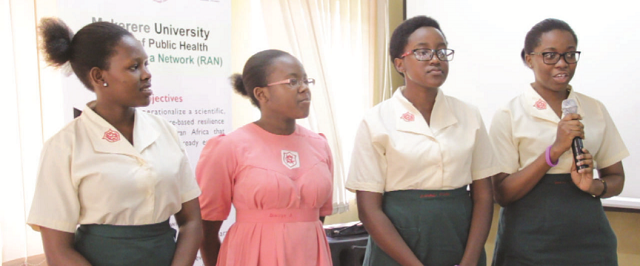
The tricks schools use to raise fees
As schools across the country opened for the first term of 2017 a few weeks ago, the anger among parents over hiked school fees appears to have hit boiling point.
The media was awash with circulars of various schools, especially government schools which are meant to be more affordable than private ones, showing what are being termed as exorbitant school fees.
Although government schools are supposed to charge minimal fees under the two flagship education programmes of Universal Primary Education (UPE) and Universal Secondary Education (USE), the school administrations appear to have, with one sweep, rolled them back.
And the move appears to have taken the government by surprise.
When, weeks into the term, The Independent spoke to Benson Kule, the Commissioner in Charge of Secondary Education at the Ministry of Education under whose docket the fees structure arrangement falls, he said they were having a series of meetings to address the issue. He said the meeting, which involved the Permanent Secretary, would result in a ministerial statement on the issue.
However, Aggrey Kibenge, the Undersecretary at the same ministry had earlier told The Independent that there is a due process whereby government aided schools have to seek permission and submit a Board of Governors resolution to the Permanent Secretary for approval.
Indeed when releasing the UACE results on Feb 21, Janet Museveni, the Minister for Education and Sports issued a sharp warning to government schools about the arbitrary increasing of school fees saying permission to do this can only be got from the Permanent Secretary.
It is not clear if all government schools that have hiked fees first consulted the ministry.
Even then, however, some experts in the education sector are already accusing the government of failing the education sector.
Former commissioner in the Ministry of Education Fagil Mandy told The Independent in an interview that the schools fees hiking is out of order partly due to failed government policy.
“There was a policy to control government school fees in the early 1990s recommended by the Gonahasa Report. Gonahasa was the expert selected to lead a commission for fees structure. The ministry had started implementing it but now the whole thing died out,” he said.
Mandy says the Gonahasa Commission spelt out modalities for subventions and salaries for teachers.
“What is going on now is not proper,” he said, “The schools should not run on a free market basis. There is clearly no justification for these schools to raise their fees.”
Mandy says unless the government intervenes, it will have behaved carelessly “because such an essential service cannot be left to the mercy of private entrepreneurs”.
Agitated parents have already sent a petition to Parliament and the Speaker, Rebecca Kadaga, has promised “to deal with the schools”. The petition was filed by Initiative for Social and Economic Rights, (ISER) a civil society organisation that monitors and documents human rights issues in education service delivery.
 The Independent Uganda: You get the Truth we Pay the Price
The Independent Uganda: You get the Truth we Pay the Price



I greet you all in the name of Jesus Christ , am a student from kirimya high school masaka and I have been paying for my school fees from senior 1_4 , and bad chance I didn’t not get the aggregates I wanted and by now I have no school fees for taking me in A” level so I humbly request those who are in concern to help me with school fees paying thank you , your appreciation will be thankful